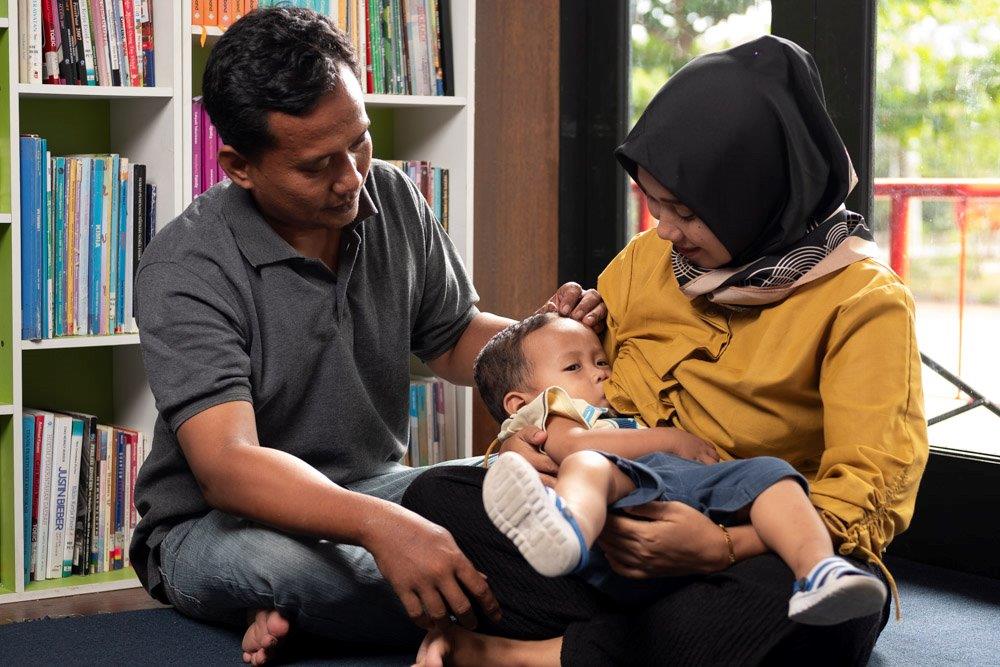Why Mothers are Key in Childhood Development?

Families play a vital part in the development of young children, and perhaps no one role is more important than that of the mother.
To commemorate Mother’s Day which falls on December 22 in Indonesia, Tanoto Foundation, an independent family philanthropy organisation founded by Sukanto Tanoto and Tinah Bingei Tanoto in 1981, is raising awareness of the work of these often overlooked heroes, and sharing inspiration and knowledge about best practices in parenting.
Why parents matter
The so-called ‘Golden Age’ from 0-5 years plays a key role in physical and brain development. Research at the University of Chicago shows that around half of intellectual development takes place between the age of four, and 80 per cent by the age of eight.
That means that 50 per cent of a child’s intellectual capacity has already been determined before they enter the formal education system. And it’s parents who have the ability to determine the success or otherwise of this crucial early period.
Optimizing children’s growth and development
While there are many factors that can affect a child’s development, they broadly fall into three categories: diet, living environment and lifestyle, and parenting.
A healthy diet is crucial to physical and intellectual development, but a lack of understanding on what constitutes a balanced meal is one of the factors behind Indonesia’s persistently high rate of child stunting. Most children get enough calories, but often meals are rice-heavy and lacking in adequate nutrients.
Children under six months should also be exclusively breastfed, but according to the WHO only one in two children in Indonesia are, and only a little more than 5 percent of children are still breastfed at 23 months of age.
In 2017, the government launched the National Strategy to Accelerate Stunting Prevention (StraNas Stunting), adopting a “whole-of-government” approach involving 22 ministries that cover health, early childhood education and development, water, sanitation and hygiene, food security and social protection incentives.
In partnership with the World Bank, Tanoto Foundation supports StraNas on behavioral change communication. To prevent stunting, mothers should be encouraged to breastfeed exclusively until their babies are 6 months old.
Lifestyle involves teaching children basic hygiene, such as washing hands with soap and clean running water, and not defecating openly. UNICEF noted that nearly 25 million people in Indonesia do not use toilets, which both impacts dignity and presents a health hazard.

Parenting encompasses all these things, as well as an understanding of how to care for and nurture a child’s intellectual development, for example by helping prepare them for when it’s time to enter the formal education system.
As early as possible, psychosocial stimulation in children is important to stimulate brain development. Tanoto Foundation, through early childhood centers, provides training on parenting and creative learning that emphasizes activities that can be done at home to support children’s cognitive and motor intelligence.
The importance of the mother
All of this starts from the family, and both parents have vital roles to play. In Indonesia it’s still common for mothers to take the lead in feeding the family, so their knowledge of nutrition is vital.
Likewise with health, where mothers are often the ones taking young children for their regular health checkups.
This Mother’s Day we’re saluting all the mothers in Indonesia, who work so hard to raise the country’s next generation. We’ll be raising awareness throughout the month of December on best practices in parenting, diet, and a clean and healthy lifestyle that can be started from the family, so follow our social media channels for more.

the article above has a clear delivery of content and intentions for readers, especially for myself.